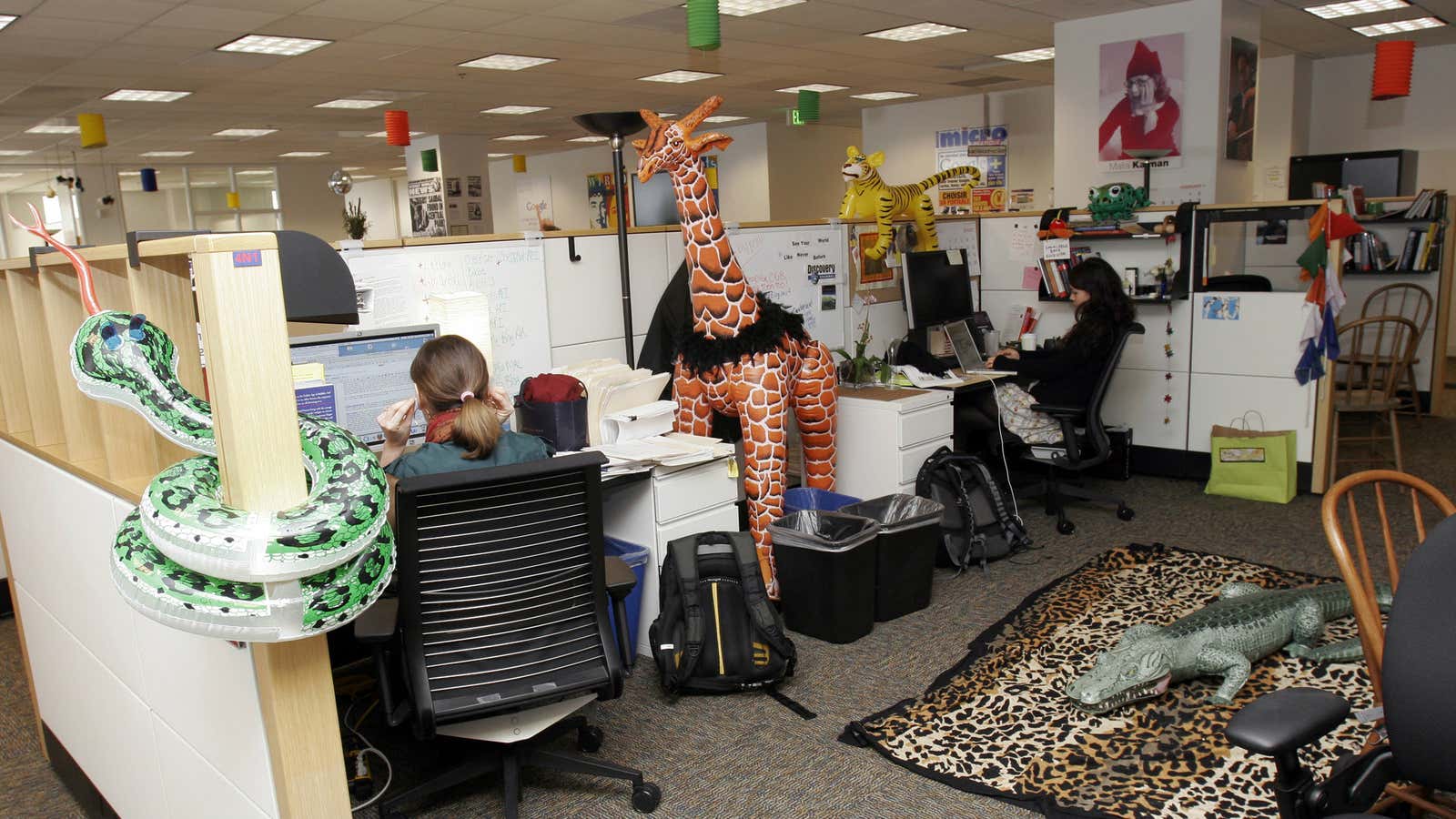Google wants to know the secret to building a more productive team.
The tech giant charged a team to find out. The project, known as Project Aristotle, took several years, and included interviews with hundreds of employees and analysis of data about the people on more than 100 active teams at the company. The Googlers looked hard to find a magic formula—the perfect mix of individuals necessary to form a stellar team—but it wasn’t that simple. “We were dead wrong,” the company said.
Google’s data-driven approach ended up highlighting what leaders in the business world have known for a while; the best teams respect one another’s emotions and are mindful that all members should contribute to the conversation equally. It has less to do with who is in a team, and more with how a team’s members interact with one another.
The findings echo Stephen Covey’s influential 1989 book The 7 Habits of Highly Effective People: Members of productive teams take the effort to understand each other, find a way to relate to each other, and then try to make themselves understood.
Matt Sakaguchi, a midlevel manager at Google, was keen to put Project Aristotle’s findings into practice. He told Charles Duhigg of The New York Times how he took his team off-site to open up about his cancer diagnosis. His colleagues were initially silent, but then began sharing their own personal stories.
At the heart of Sakaguchi’s strategy, and Google’s findings, is the concept of “psychological safety,” a model of teamwork in which members have a shared belief that it is safe to take risks and share a range of ideas without the fear of being humiliated. As Google explains:
Did you feel like you could ask what the goal was without the risk of sounding like you’re the only one out of the loop? Or did you opt for continuing without clarifying anything, in order to avoid being perceived as someone who is unaware?
Harvard Business School professor Amy Edmondson explored the concept a 1999 study, which concluded that “psychological safety” boosted performance in teams.
Google now describes psychological safety as the most important factor to building a successful team.
In short, just be nice.
This Quartz story originally appeared on qz.com on Feb. 26, 2016.
